Donald Trump left our country unprepared and unprotected for the worst public health and economic crisis in our lifetime — and now we're paying the price. pic.twitter.com/aCxcqQqUqw
— Joe Biden (@JoeBiden) April 18, 2020
Donald Trump left our country unprepared and unprotected for the worst public health and economic crisis in our lifetime — and now we're paying the price. pic.twitter.com/aCxcqQqUqw
— Joe Biden (@JoeBiden) April 18, 2020
Never saw this before today. Good quality, excellent color, nicely mixed. Madison Square Garden, New York — 8.1.71. I saw Dylan play live exactly once, at Chicago’s Auditorium Theatre in 2005. The Never Ending Tour.
The other day I was saying to a friend that in 1960 industry attitudes about films like Psycho (shock and scare, psychologically twisted protagonist, knife murders and perversion) were regarded as basement-dwelling genre films, and that the most that could happen, even with Psycho‘s phenomenal financial success, were Oscar nominations and not wins.
The friend reminded that Bernard Herrmann‘s Psycho score, easily one of the most distinctive and influential ever composed, wasn’t even nominated. Obviously a major snub — Herrmann’s score should have won.
All I can figure or theorize is that Herrmann might have been personally disliked or otherwise regarded askance by colleagues. (Or something in that realm.) I’ve never read a biography of the man. Has anyone?
Alfred Hitchcock was handed a Best Director nomination that year, but Billy Wilder won for The Apartment. Janet Leigh was nominated for Best Supporting Actress (an odd call as she didn’t deliver in any kind of striking way), but Elmer Gantry‘s Shirley Jones won. Psycho was also nominated for best black & white cinematography (John Russell), but Freddie Francis won for Sons and Lovers. Psycho‘s black & white art direction and set decoration was nominated (Joseph Hurley, Robert Clatworthy, George Milo), but the Oscar was won by The Apartment‘s Alexandre Trauner and Edward G. Boyle.
Incidentally: Whatever happened to the idea of Universal releasing a Bluray of the slightly more risque German version? I’d buy it without blinking.
I’d like to agree. Okay, I do agree. To some extent. I’d like to think that things aren’t as bad as certain headlines have indicated. Okay, maybe they’re not. Editors know that fear sells, and we know that they know this. So while the actual reporting is reliable and commendable, headline suspicion is an okay thing. (Right?) Otherwise all I know is that self-imposed imprisonment is no way to live. Well, it is but at such a cost.
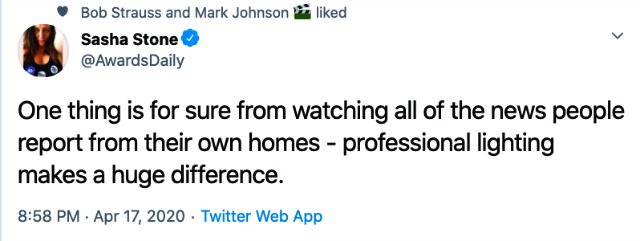
From sea to shining sea Americans are undoubtedly drinking more, getting stoned, dropping Percocets, etc. It’s all part of the general atmosphere of depression and stasis. Time is standing still. Writing for writing’s sake is the only thing that keeps me going. That and phone surfing, watching films, taking strolls and safe (if technically illegal) hiking.
Last night Tatiana wanted to get high, so we walked up to The Artist Tree and bought a $51 container of Crescendo plus some rolling papers. For roughly the same cost they sell four pre-rolled joints, but where’s the fun in that?
Tatiana tried to talk me into joining her, but I can’t even flirt with the idea. Getting ripped has been out of the question since my mid 20s, which was when I realized that cannabis potentially re-ignites “the fear,” a state of acute anxiety and terror that I don’t even want to think about as we speak. I accidentally re-experienced this in the late ’90s when I stupidly ate a pot brownie. I don’t know what I was thinking.
But Tatiana had fun, got the munchies, etc.
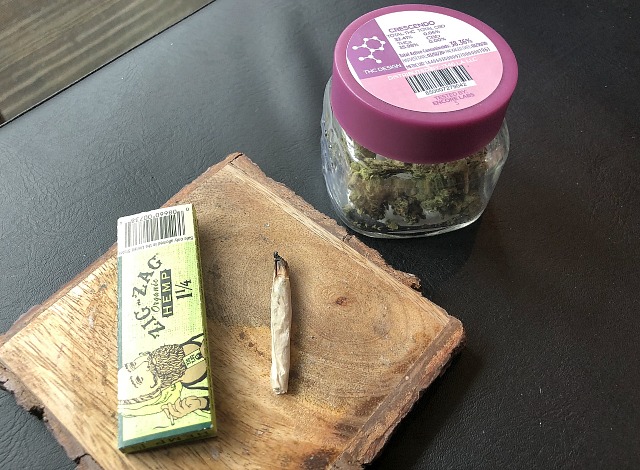
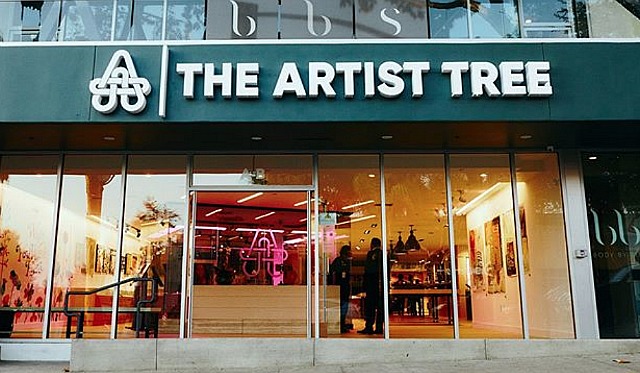
I intended to watch the first three episodes of Mrs. America on 4.15, when they began streaming. So what happened? I’ll tell you what happened. Last Wednesday arrived and I didn’t get around to it. I kinda sorta forgot, to be honest. Plus I painted the hallway between the living room and the bedroom, above and beyond my column duties. Ditto Thursday and Friday. A three hour commitment isn’t a simple or easy thing. But today I will hunker down.
From Linda Holmes’ NPR review (4.15): “Mrs. America doesn’t ask you to sympathize with Phyllis Schlafly, exactly; it is unsparing in drawing her as a tremendously unkind and destructive person — and, increasingly as it goes on, a dishonest one. But it does seek to explain something about her. It seeks to use the story of her as a way to explain how power works and how politics works, as well as how the ERA came to fail after looking like it was on a clear path to ratification.
“But perhaps we are past needing all of this explained. Perhaps that is why the story of Schlafly feels wearying.
“To be clear, Mrs. America is made well (directing editing, acting). There are some playful and clever juxtapositions in the editing, as when you jump from a very sexy scene to one in which Schlafly is dutifully rubbing her husband’s tired calves. The re-creation of the aesthetic of the period is gorgeous and feels truthful, looking like the 1970s rather than a send-up of the 1970s. Across nine episodes, it never feels dull, even though it does sometimes feel a bit speechy. It doesn’t give in to too many of those moments in historical pieces in which names are dropped in a wink-wink kind of way, as when Schlafly meets two young men late in the series who seem unimportant and then introduce themselves as Roger Stone and Paul Manafort. Or when a young woman helping with the legal work is told, at the close of her one significant scene that perhaps she should assume a higher-profile role — and then she is addressed as ‘Mrs. Ginsburg.’ Winkety-wink.
“But something seems amiss, separate from the filmmaking, separate from the artistry. Maybe it’s just that it can be hard to separate Mrs. America‘s utter bleakness from its quality. Its conviction that determined public figures can persuade people to turn on their neighbors in response to invented threats is hard to argue with, but hardly a proposition for which one needs to turn to fiction — even historical fiction. As the old Palmolive ad of this era would have said: we’re soaking in it.”
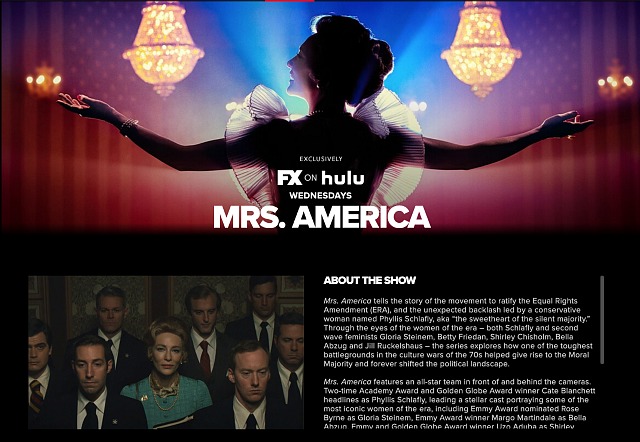
Several times over the last few weeks I’ve told myself (not verbally but awash in my streaming mind waves), “This isn’t a dream…this is really happening.” And then, for a minute or two, I fall into a pit of depression. And then I gradually climb out of it.
From 1957 to ’66 the televized Perry Mason (played by Raymond Burr) was a wealthy, brilliant, barrel-chested attorney who was always a step or two ahead of everyone (especially William Talman and Ray Collins), and never lost a case when it went to court. Which was every damn time. Mason never settled or struck a pre-trial accommodation with anyone.
A new adaptation of Erle Stanley Gardner‘s paperback franchise is set in 1932 Los Angeles and features a grimy, hand-to-mouth shamus (played by Matthew Rhys) who might have been competitive with J.J. Gittes.
HBO’s Perry Mason, directed by Tim Van Patten, launches on 6.21.20.
Boilerplate: “While the rest of the country recovers from the Great Depression, Los Angeles is booming! Oil, Olympic games, talking pictures, evangelical fervor, etc. And a child kidnapping gone very, very wrong! [This] limited series follows the origins of American Fiction’s most legendary criminal defense lawyer, Perry Mason. When the case of the decade breaks down his door, Mason’s relentless pursuit of the truth reveals a fractured city and just maybe, a pathway to redemption for himself.”
Word around the campfire is that the 2020 Telluride Film Festival might begin a day early, or on Thursday, 9.3. Maybe. Who knows?
Journo pally: Okay but do you really think Telluride can happen in early September?
HE: Sure! Actually, I don’t know. I suspect it will. Maybe they’ll hand out special blue-tinted passes to people who’ve been tested 15 to 20 days before arriving. You’ll have to send the certificate a week or two before it begins. The tested people will be allowed to congregate. The second-class festivalgoers (those who haven’t been tested) will have to maintain the usual distances and sit two seats apart. Plus no feeds or parties to speak of.
Journo pally: Well, I hope you’re right.
HE: The curve will be totally flat by August, most likely. Perhaps even by mid to late July. Yes, the virus will resurge whack-a-mole style, but Telluride people are not high-risk types for the most part. Healthier, smarter, better educated, wealthier (except for the journalists), more conscientious, better diets, no obesity to speak of. The odds of the 2020 Telluride Film Festival being turned into a catastrophic coronavirus pigfuck are not high.
Journo pally: I do hope that scenario proves more or less accurate. I’m not as convinced as you, but if that’s the way it happens, I think we’ll be fine.
HE: You’re saying in a very gentle way that I don’t really know anything. Which is true, of course. But I need to believe in this. I need to be believe in a future that includes a little bit of open-air happiness and fraternity and the return of films screened in theatres.
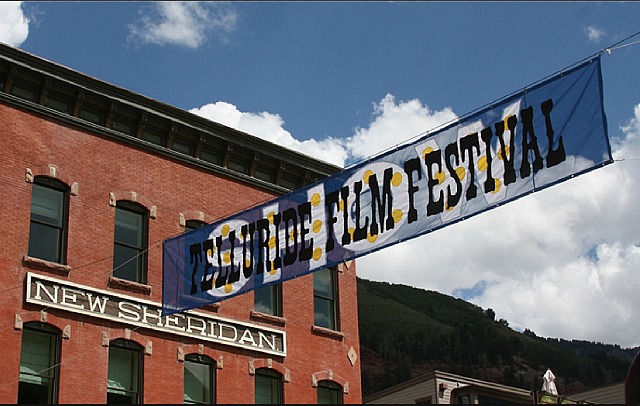
I had an odd dream this morning. I was attending an Oscar-related party in a large, elegant pre-war home in Los Angeles. Probably taking place in the past as social congregating was rampant. Amber light, magic hour, probably in mid-summer. I recognized exactly one fellow journalist (Michael Musto) but otherwise I might as well have been in rural Oregon or Utah. Stag, sans Tatiana…no idea why.
I was standing near a fireplace when a gray-haired guy and his wife said hello. He was a dentist, he casually mentioned, and in fact had performed some dental work on me a year or so ago. I didn’t want to be impolite but he had to be mistaking me for someone else. And, he added, I hadn’t fully paid my bill. That startled me. I suddenly realized I had in fact been to his office and somehow forgotten. I apologized and said I’d PayPal him the balance. “What’s your email?” I asked. “You have it,” he said, although he wouldn’t say his name.
I sat down on a couch in a shaded sunporch area, and laid my head back and closed my eyes. Seconds later I nodded off. I awoke some time later and noticed it was still fairly light out and that the same people were milling around. I looked at my watch and realized it was 6:30 am the following morning. I’d slept nine or ten hours. My first thought was that Tatiana was probably sleeping but would be worried, and that I had to call and explain what happened. And then I woke up.
Interpretation: The party represents my longing to experience social mingling once again. Sleeping through a party represents anguish over missing out on the joy of living during the pandemic. The dentist telling me that I still owe him money represents my anxiety about ad revenue. The absence of Tatiana indicates my existential sense of being permanently alone, in the European philosopher or J.J. Gittes sense of that term. The fact that I thought immediately of calling her when I woke up at 6:30 am means only that I knew I’d be in trouble if I didn’t.

I’m this, I’m that, I’m all over the map. I’m solemn, spiritual, fickle as fuck. I sing songs, fuck around, ride a proud rumblehog, write all day, imitate coyote howls, paint walls, love vegetable korma, give neck and foot massages, etc.
Standing six feet apart, the Rolling Stones (Jagger, Richards, Watts, Wood) will play a tune during tomorrow’s two-hour telecast “Together at Home”, which begins at 8 pm (on both coasts). Other performers will include Eddie Vedder, Taylor Swift, Lady Gaga, Paul McCartney, Billie Eilish, Lizzo, Elton John, Andrea Bocelli, Celine Dion, Shawn Mendes, Camila Cabello, Jennifer Lopez, Kacey Musgraves, Billie Joe Armstrong, Chris Martin, Sam Smith, Lang Lang, Alanis Morissette, Burna Boy and Stevie Wonder.
All well and good but there’s no special current if a band is performing inside a closed studio or in someone’s living room or whatever. No audience or lighting effects or big arena means NO JUICE.
Participating outlets will include ABC, NBC, ViacomCBS Networks, iHeartMedia and Bell Media networks, YouTube, Facebook, Twitter, Instagram, Yahoo, Twitch, Amazon Prime Video, Apple Music, Roblox, Tidal, Alibaba, beIN Media Group, LiveXLive, Tencent, TuneIn, AXS TV, beIN Media Group, MultiChoice Group and RTE. BBC One will air the fucking thing on Sunday night.
A streaming-only, six-hour pre-telecast special will also happen tomorrow, beginning at 2 p.m. Eastern and 11 am Pacific. Performers will include Sheryl Crow and the Killers, Adam Lambert, Andra Day, Annie Lennox, Ben Platt, Charlie Puth, Christine and the Queens, Common, Ellie Goulding, Hozier, Jack Johnson, Jennifer Hudson, Jessie Reyez, Juanes, Kesha, Lady Antebellum, Liam Payne, Luis Fonsi, Maren Morris, Michael Bublé, Niall Horan, etc.